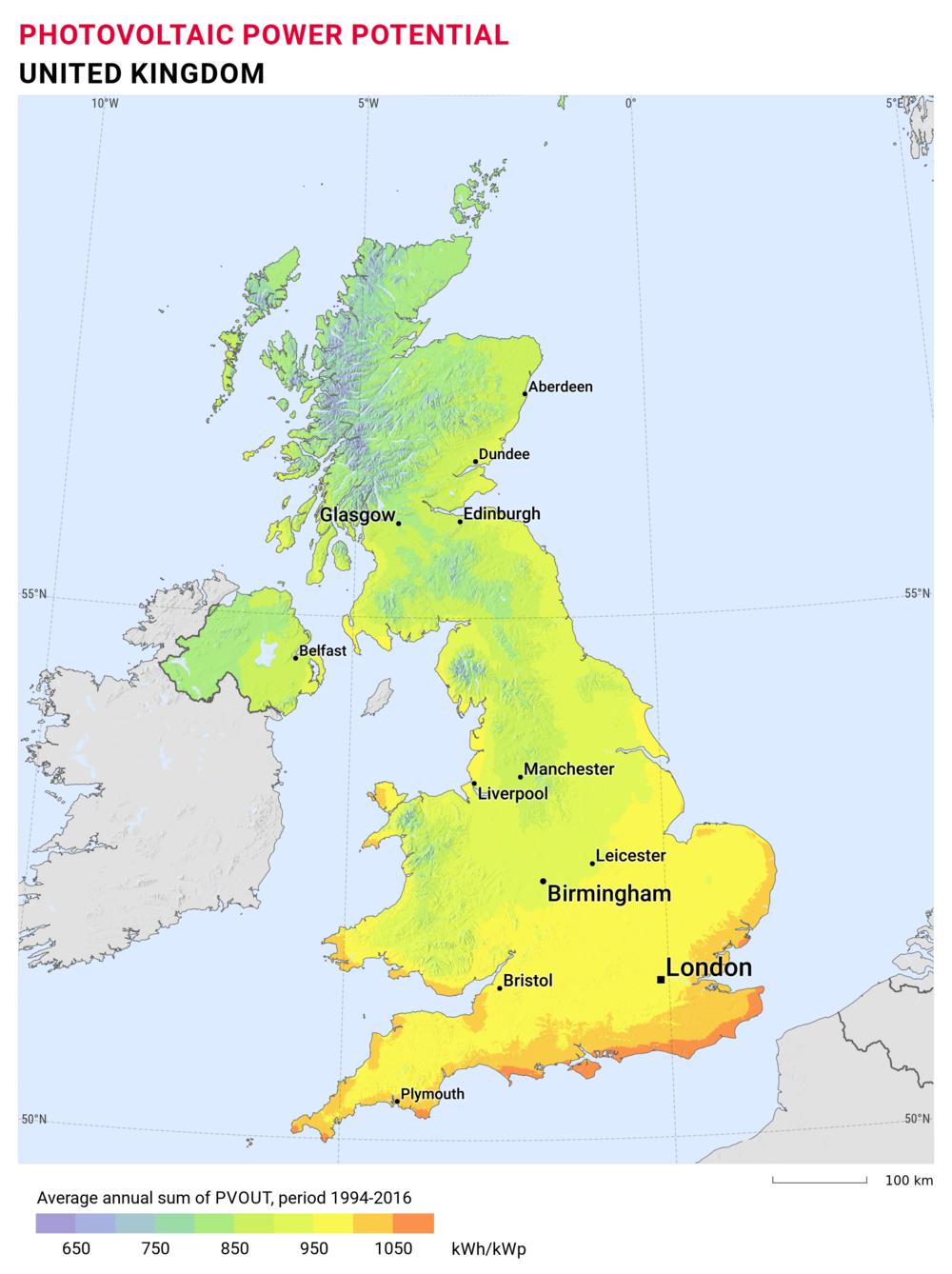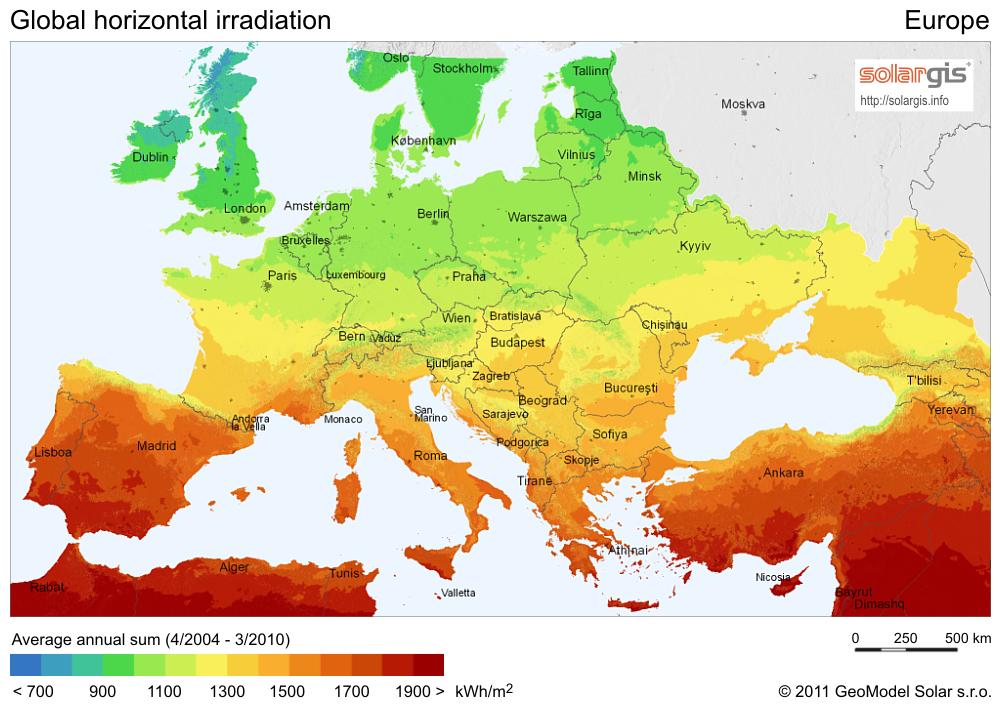
The peak sun hour is 1 hour of sunlight at an intensity of 1,000W/m² (92.9W/ft²). The power rating of solar panels is also measured at 1,000W/m² (92.9W/ft²).
In other words, solar panels placed perpendicular to the direction of sunlight exposure will only output at their rated power when the sunlight exposure intensity reaches 1,000W/m² (92.9W/ft²).
As you know, the sun’s rays only have a chance to reach their maximum intensity during the midday hours. Maximum irradiance up to 1,360W/m² (127.8W/ft²).
But peak sun hour is not just about the energy gained during the noon hour. It is the sum of all sun hour, the equivalent value of all the solar energy received during a day.
The peak sun hour is especially important for DIY solar power system. After planning the total power, you need to calculate how many panels you need based on the peak sun hour of your location.
For example, you want to design a solar power system that can produce 6kWh per day. You plan to use 200W of solar panels. The peak sun hour in your area is 3 hours. Then you need 6kW/(200W x 3) = 10 panels.

Peak Sun Hour in Major UK Cities
|
Cities |
Peak Sun Hour(PSH) |
|
Aberdeen |
2.4 |
|
Belfast |
2.4 |
|
Birmingham |
2.6 |
|
Bristol |
2.8 |
|
Cambridge |
2.7 |
|
Cardiff |
2.9 |
|
Edinburgh |
2.4 |
|
Glasgow |
2.4 |
|
Kingston Upon Hull |
2.5 |
|
Leicester |
2.5 |
|
Liverpool |
2.6 |
|
London |
2.8 |
|
Manchester |
2.5 |
|
New Castle Upon Tyne |
2.5 |
|
Oxford |
2.7 |
|
Plymouth |
3.0 |
|
Southampton |
2.9 |

This map can be used to estimate the number of solar panels, batteries, etc. that are needed for powering solar air conditioners or other equipment with a predictable power draw.
As you can see, northern Europe has some of the lowest average daily solar insolation values when compared to North America, South America, Africa, etc. However, Europe and in particular, Germany, leads the world in solar energy development and deployment.
That's because it's all about money and the cost of the energy that is being avoided. Even low-sun areas can make advantageous use of solar energy when the cost of electricity is high.